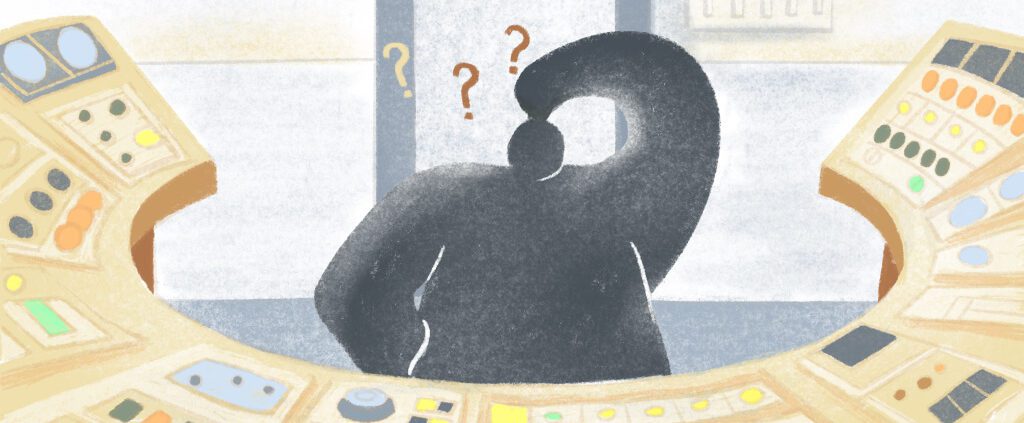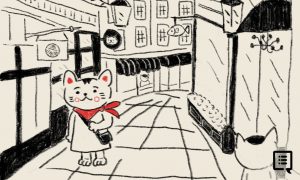5 Things to Remember When You’re Faced With Decision Paralysis
There’s a queue behind me all the way out the door. People are frowning, shuffling on the spot, trying to peer around me. I know I’m keeping them waiting, but I just can’t decide.
Lemon sorbet? Or chocolate crunch? Will I regret getting the tiramisu? How am I supposed to decide?!
Now outside, I put the tiny wooden spoon in my mouth and try to ignore the dry sensation on my tongue. Another wrong decision, I sigh. I feel like once again I’ve missed out on a “better option”, which is always disappointing.
You might be thinking, So what? It’s just gelato. But some of you might relate to that overwhelmed, panicky feeling when trying to make decisions in other contexts.
I’ve experienced many bouts of decision paralysis in my life—that feeling of being so stuck in between options that you feel genuinely paralysed. Whether this stems from a fear of missing out on the best option or of being told off for making a poor choice, I don’t know. Often, they’ve been quite inconsequential decisions, like which movie to see at the cinema, or who to pass the ball to during a game of soccer.
Then other times, I’ve found my inability to make a decision much more detrimental—like what to study, which job to take, and who to marry—which are all important decisions that would be wise for us to deliberate on.
But what do we do when we’ve prayed about it, written the pros and cons list, and we still can’t choose?
I’ve felt the indecisive horrors of decision paralysis in those big life decisions, but through each of them, I’ve learned strategies to help me face and overcome them in the future. Here are five lessons that have helped me:
1. Often, there is no “best” choice
I spent my final year of high school being peppered with questions about my future. What did I want to do with my life? What degree would I study? Blessed with endless options, I felt paralysed by the weight of that decision. I felt pressured to figure out God’s “will” for my life, and I worried that if I didn’t know what that was, I would be disobedient to His calling and “wasting my life”.
I journalled throughout the year asking God to make it clear what He wanted me to do. Verses like Jeremiah 29:11 circled round my head: “For I know the plans I have for you…” Great, I thought. So, can You please tell me what those plans are?
It wasn’t until my mum sat me down one day and said between my overwhelmed sobs: “Maddy, it’s okay. There is no wrong decision. You can honour God in whatever you do, whether that’s working in childcare, as a defence lawyer, a beauty therapist, or a surgeon. It’s not so much what you’ll be doing, but more about how you’re going about it.”
There are good and bad choices we’ll face in life, but there are often plenty of possibilities between equally good choices. And that’s the catch-22 of having free will—it’s up to us to decide.
I thought about what my mum said, and while it felt frustrating at first, I realised that this took the pressure off making the “right” decision. I found comfort in remembering that “in all things God works for the good of those who love Him, who have been called according to His purpose” (Romans 8:28). He knows our hearts and is more than able to use our circumstances to make us more like Jesus—which is the goal of His working for our good.
And if I believe that God will work for my good, then I can trust that even if I do make a poor choice, my life doesn’t have to be defined by that one choice.
2. You can’t steer until you’re moving
As a captain of a missionary ship, my dad would often preach in different places. I loved hearing his stories, especially when he used his maritime knowledge as metaphors for faith.
“You can’t steer a ship while it’s stationary,” he’d say. “It has to be moving.”
I’ve found this principle to be true throughout my life. Often, making a decision is better than making no decision.
I started my university life studying for a double degree in law and arts. But, three years into the degree, I decided to drop the law degree and focus on the arts. Instead of worrying that I had “wasted” those years, I realised that they gave me the opportunity to work out what I was really passionate about—which I wouldn’t have known if I hadn’t taken that first step of trying.
When I’m facing a decision where my columns of “pros” and “cons” are at a stalemate, I think of Proverbs 3:5-6: “Trust in the Lord with all your heart and lean not on your own understanding; in all your ways submit to him, and He will make your paths straight.”
I take comfort in knowing God will direct my steps as long as I’m submitting to Him and inviting Him into my decision-making process.
But He can’t direct me until I take that faith-step and start walking. So, instead of agonising over the right decision, I find peace in knowing that as I take a step in faith, He will “make my paths straight”.
3. Trust the people who know you
I almost got engaged to the wrong man. We’d been together for two years and were planning the natural next step of our relationship, but I felt paralysed by that decision.
So I went to my parents, my trusted mentor, and my closest friends for their honest opinions, and to my surprise, they all said the same thing: We actually don’t think he’s right for you.
I was fortunate to have people around me who were wise, prayerful followers of Jesus and who boldly spoke the truth, even when it hurt me to hear it. Where I’d been too close to the situation to make an unbiased decision, they’d helped me see things more clearly.
We see King Solomon reminding us of the importance of wise counsel in his proverbs. He writes, “Plans fail for lack of counsel, but with many advisers they succeed” (Proverbs 15:22) and “For lack of guidance a nation falls, but victory is won through many advisers” (Proverbs 11:14).
Inviting others into our decision-making process is more than posting a poll on our Instagram stories asking people to vote. We should seek advice from those who demonstrate godly wisdom in the way they live, from those who know and love us, and from those we trust and look up to.
Years later, I made one of the best decisions of my life: to marry my now husband, Matt, with the blessing and enthusiastic encouragement of those same people. My life would look very different today had I not asked for–and listened to–their advice.
4. Don’t “follow your heart”; follow the Spirit
It’s in hashtags, on mugs, and plastered all over campaigns: Follow your heart. It can be easy to get swept up in how nice that sounds.
But according to Jeremiah 17:9, “The heart is deceitful above all things”. How then can we trust our heart enough to follow it?
We follow the Spirit who is with us always. God gave us His Spirit because He knew that we’d need His guidance and discernment. To me, this means purposefully asking Him for wisdom, especially in light of decisions.
In 1 Kings 3:9-12, we see a God who is eager to give Solomon what he asks for. Solomon says to the Lord: “So give your servant a discerning heart to govern your people and to distinguish between right and wrong.” And guess what? “The Lord was pleased that Solomon had asked for this.”
As simple as it sounds, I often forget that I can ask God for His wisdom and discernment. Do you ask Him for that, too?
When it came time to make the decision about accepting my current job, I took it to God and asked for His wisdom. Once I had submitted the decision to Him, I felt prompted to take this job, and had peace knowing that was the Holy Spirit within me answering my prayer.
5. Lastly, look at past choices with grace
Last year, I left a comfortable job to try something new. The job I was leaving was great and I didn’t know much about the new one, but I knew I didn’t want to spend my time wondering what might have been, so I took the leap.
Several months into the new job, I started noticing unhealthy aspects of the team and work culture. My stress levels grew, and I regretted taking the job. That regret quickly spiralled into negative feelings about the choice I’d made. It took conversations with my counsellor and friends for me to stop feeling angry at myself, and to see the situation for what it was—yes, the new job wasn’t all it’s cracked up to be, but I couldn’t have known back then how it would turn out.
It’s so important to look back on past choices we’ve made with grace. This means I can look back on times when I feel like I’ve made the “wrong” decision and recognise that firstly, the outcome wasn’t as bad as I’d feared it might be; secondly, what I know now with hindsight isn’t what I knew when I made the decision.
After reflecting on my decision, I started looking for a new job and found a workplace that was a better fit for my values and skills. Rather than dwelling on regrets, I’ve learned that we can instead be thankful that the choices we regret now enable us to make better decisions.
Instead of going into all the “what could have been”, we can take heart in knowing that, as Paul says, our new selves are “being renewed in knowledge in the image of [our] Creator” (Colossians 3:10). The more we trust in Him and allow ourselves to be renewed in His image, the more we’ll be in tune with His will and His ways, making it easier to make decisions that glorify Him.
Like it or not, we will be faced with difficult decisions in life, but I’ve found peace in knowing that God doesn’t want me to be paralysed by choices. He gives me the free will to make my decisions, and His Spirit is in me to give me the wisdom and discernment I need.
I can trust that as I submit my decisions to Him and take the first step, He will guide me. And, if I’m stuck, I know He’s placed people in my life who can also help point me in the right direction. At the end of the day, so long as I remain in Jesus, there is no decision I can make that God can’t redeem and work for my good. Isn’t that a comforting thought?
Back to HomepageBack to Homepage















Thanks for sharing
I always get stressed out when making important decisions as well, so this was a great reminder.
Thank you a lot for this note